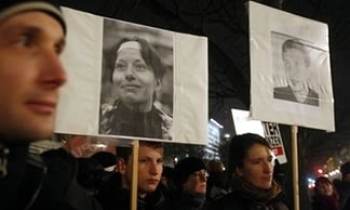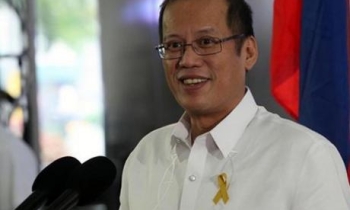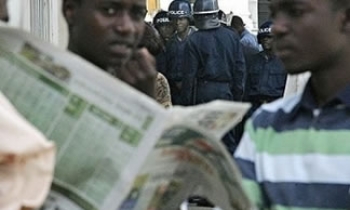The International Press Institute (IPI) has decided to retain Ethiopia, Nepal, Russia, Venezuela and Zimbabwe on the IPI Watch List.
The IPI board, which met in Istanbul on May 12, also voiced serious concerns about press freedom in Sri Lanka and resolved to make a final decision on whether to add Sri Lanka to the IPI Watch List at the IPI board meeting in November 2007. A final decision will be taken once the IPI board receives a full report about the country. IPI is due to take part in a joint mission to Sri Lanka in late June.
Commenting on the Sri Lankan situation, IPI Director Johann P Fritz said, "It is clear that once again journalists in the country are reporting in a climate of extreme fear and violence, particularly Tamil journalists reporting outside the country’s capital, Colombo. I look forward to the international mission discussing its concerns with the government and other interested parties, and I hope that all parties will express a clear and unambiguous commitment to support press freedom in Sri Lanka."
Regarding Ethiopia, Fritz said, "While I welcome the release of imprisoned journalists in Ethiopia, a number still remain in detention. I hope the Ethiopian authorities will immediately release these journalists and refrain from introducing a press law that contains a number of clauses that undermine freedom of the press."
"The situation has become increasingly desperate in Zimbabwe and there is little or no private media in the country. Most of the journalism profession has succumbed to an array of deeply repressive laws and violence and intimidation," he said.
"In Russia the most worrying aspect of the media environment is the murder of journalists and the impunity that follows. The Russian authorities must do more to not only find the killers of journalists, but also those who issue the orders," added Fritz.
Concerning Venezuela, Fritz said, "The blatantly politically motivated decision not to renew the broadcasting license of Radio Caracas Television (RCTV) is an interference in the private media and a sign that the press freedom situation in Venezuela is worsening."
"Perhaps the only country on the IPI Watch List that has seen a positive improvement is Nepal, but IPI continues to watch the situation closely because there are still press freedom violations occurring in the country, which threaten the democratization process."
The guiding principle behind the IPI Watch List is to open up a dialogue with countries before they slide into repression. IPI's central aim is to persuade governments that a lively and thriving media is essential to the success of their country. However, there is a general recognition that such an approach is not always possible. Therefore, countries may be included when a crisis occurs or where IPI's analysis identifies a particular problem.
Of particular importance is the question of where it is appropriate for IPI to direct its efforts? Although the IPI Watch List does not prevent the inclusion of a country where a terrorist group or other body is the major threat to the media, in general, the mechanism is applied against governments. This is because governments are often responsible for the media violations and they have the opportunity to introduce change.









